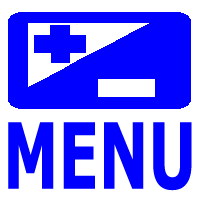Features of C language
A programming language consists of a set of grammatical rules that convey instructions to a computer to perform specific tasks. Each programming language has an unique set of keywords and special syntax to organise the software's instructions.
The significant features of C language are listed below for which C language is the most widely used language.
- Simple and Efficient - The C Language is a simple language that is easy to understand. It is efficient to use both in terms of the time of development and time of execution.
- Procedural Language - Procedural language like C specifies a series of step by step predefined instructions for the program to solve the problem. It breaks the program into functions, data structures, etc. and variables and function prototypes must be declared at the begening of the programme.
- Portability - C language is portable, because it runs and compile on any system with a little bit or no changes. If you have written a programme in the C language for Unix operating system, that programme will be run easily in Windows operating system without any change in programme code.
- Structured Programming - A structured language have the ability to break a program into parts or blocks using functions so that it may be easy to understand and modify the parts of program.
- Powerful, Fast and Efficient - C programming language is a very powerful, fast and efficient programming language. It has rich features like wide range of data types, operators, keywords, etc. It allows structure of code using functions, loops, decision-making statements, complex data-structures like structures, arrays, and pointers. We can easily read, write and create files using the C language. The compilation and execution time of C language is quite faster than other high level languages.
- Easy to Extend - Programs written in C language is extensible because when a program is already written in it then some more new features and operations can easily adopt to it.
- Rich Standard Library - C language provides a lot of inbuilt rich functions and libraries that make the development fast. Robust inbuilt libraries and functions in C help even a beginner coder to code with ease. These libraries are called Header files in C language. Even developers can write his own C language library and also can use a large number of 3rd party libraries which are created by other developers around the world.
- Memory Management - The C language provides the feature of dynamic memory allocation in which the memory is allocated during the execution of a program. Dynamic memory management in C involves the use of pointers and four standard library functions - malloc, calloc, realloc and free. The first three functions - malloc, calloc and realloc are used to allocate memory, whereas the last function free is used to freeing or deallocating memory to the system. The pointers are used to point to the dynamically allocated memory.
- Recursion - Recursion is the process of repeating items in a self-similar way, which provides code reusability for every function. C programming language allows to call a function inside the same function, means recursive call of the function.
- Syntax Based Language - the C language is a case sensitive language and has proper rules and syntax for writing the code. If we write some incorrect code syntax then the compiler is unable to compile the program and provides a compile-time error.
- Compiled Language - The C language is a compiled programming language which are generally compiled and not interpreted. The compiler compiles the code into object code/machine code that the processor can execute. To execute a program, first we have to install a C language compiler.
ADVERTISEMENT


